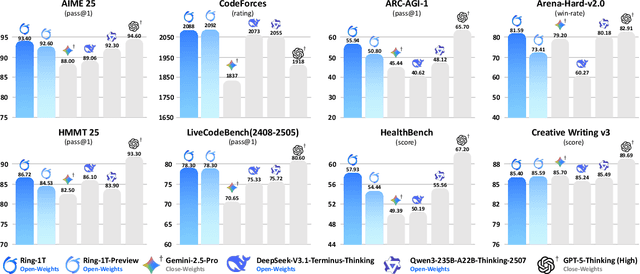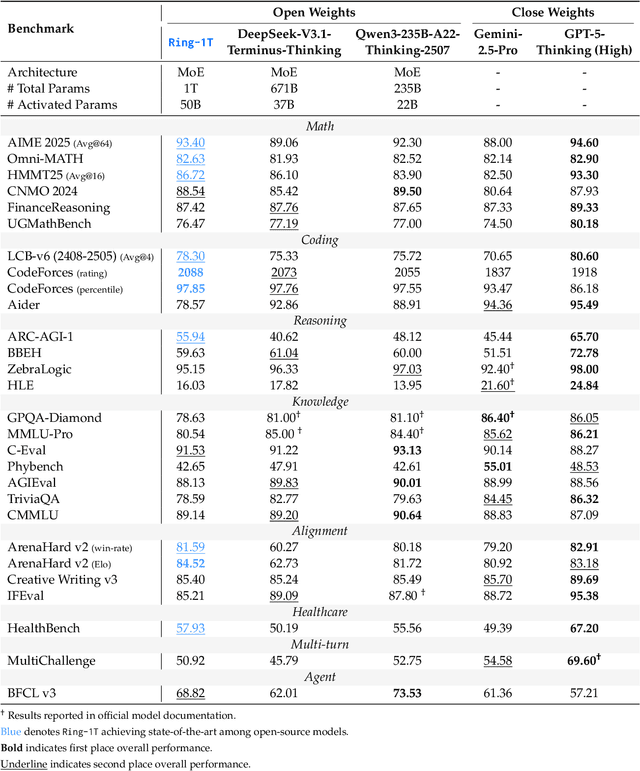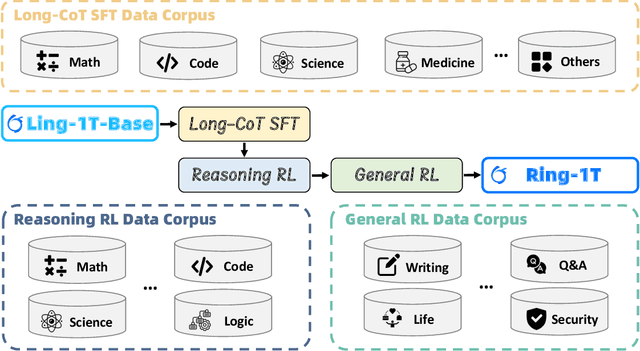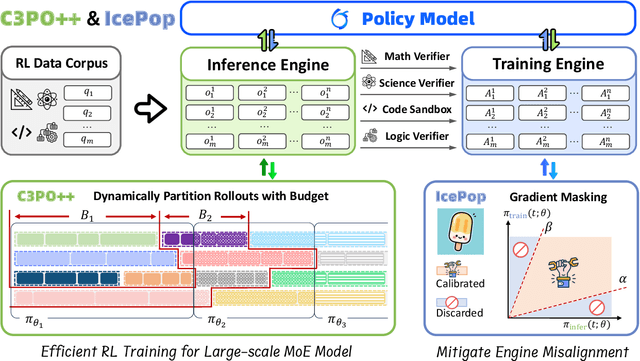Chengyao Wen
Every Step Evolves: Scaling Reinforcement Learning for Trillion-Scale Thinking Model
Oct 21, 2025



Abstract:We present Ring-1T, the first open-source, state-of-the-art thinking model with a trillion-scale parameter. It features 1 trillion total parameters and activates approximately 50 billion per token. Training such models at a trillion-parameter scale introduces unprecedented challenges, including train-inference misalignment, inefficiencies in rollout processing, and bottlenecks in the RL system. To address these, we pioneer three interconnected innovations: (1) IcePop stabilizes RL training via token-level discrepancy masking and clipping, resolving instability from training-inference mismatches; (2) C3PO++ improves resource utilization for long rollouts under a token budget by dynamically partitioning them, thereby obtaining high time efficiency; and (3) ASystem, a high-performance RL framework designed to overcome the systemic bottlenecks that impede trillion-parameter model training. Ring-1T delivers breakthrough results across critical benchmarks: 93.4 on AIME-2025, 86.72 on HMMT-2025, 2088 on CodeForces, and 55.94 on ARC-AGI-v1. Notably, it attains a silver medal-level result on the IMO-2025, underscoring its exceptional reasoning capabilities. By releasing the complete 1T parameter MoE model to the community, we provide the research community with direct access to cutting-edge reasoning capabilities. This contribution marks a significant milestone in democratizing large-scale reasoning intelligence and establishes a new baseline for open-source model performance.
On Finding Bi-objective Pareto-optimal Fraud Prevention Rule Sets for Fintech Applications
Nov 02, 2023Abstract:Rules are widely used in Fintech institutions to make fraud prevention decisions, since rules are highly interpretable thanks to their intuitive if-then structure. In practice, a two-stage framework of fraud prevention decision rule set mining is usually employed in large Fintech institutions. This paper is concerned with finding high-quality rule subsets in a bi-objective space (such as precision and recall) from an initial pool of rules. To this end, we adopt the concept of Pareto optimality and aim to find a set of non-dominated rule subsets, which constitutes a Pareto front. We propose a heuristic-based framework called PORS and we identify that the core of PORS is the problem of solution selection on the front (SSF). We provide a systematic categorization of the SSF problem and a thorough empirical evaluation of various SSF methods on both public and proprietary datasets. We also introduce a novel variant of sequential covering algorithm called SpectralRules to encourage the diversity of the initial rule set and we empirically find that SpectralRules further improves the quality of the found Pareto front. On two real application scenarios within Alipay, we demonstrate the advantages of our proposed methodology compared to existing work.
 Add to Chrome
Add to Chrome Add to Firefox
Add to Firefox Add to Edge
Add to Edge